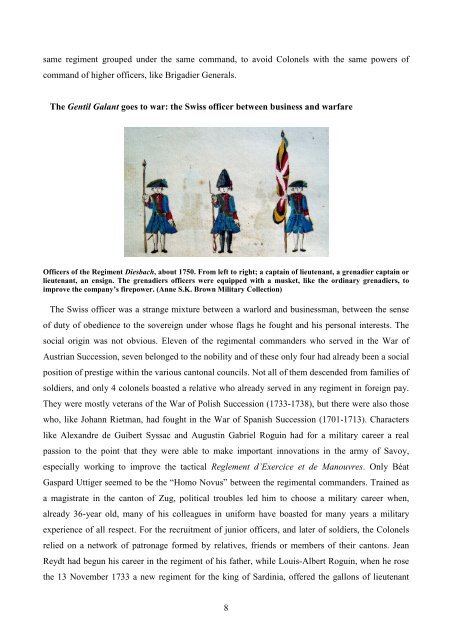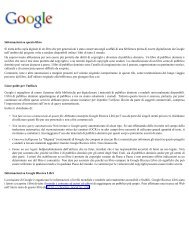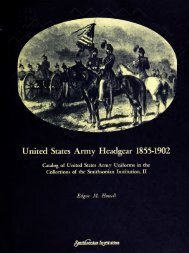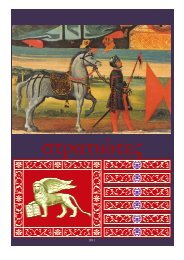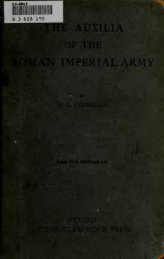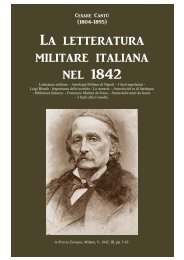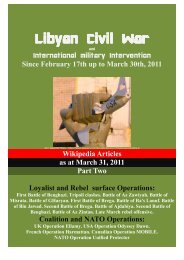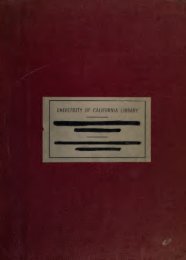same regiment grouped under the same command, to avoid Colonels with the same powers of command of higher officers, like Brigadier Generals. The Gentil Galant goes to war: the <strong>Swiss</strong> officer between business and warfare Officers of the Regiment Diesbach, about 1750. From left to right; a captain of lieutenant, a grenadier captain or lieutenant, an ensign. The grenadiers officers were equipped with a musket, like the ordinary grenadiers, to improve the company’s firepower. (Anne S.K. Brown Military Collection) The <strong>Swiss</strong> officer was a strange mixture between a warlord and businessman, between the sense of duty of obedience to the sovereign under whose flags he fought and his personal interests. The social origin was not obvious. Eleven of the regimental commanders who served in the War of Austrian Succession, seven belonged to the nobility and of these only four had already been a social position of prestige within the various cantonal councils. Not all of them descended from families of soldiers, and only 4 colonels boasted a relative who already served in any regiment in foreign pay. They were mostly veterans of the War of Polish Succession (1733-1738), but there were also those who, like Johann Rietman, had fought in the War of Spanish Succession (1701-1713). Characters like Alexandre de Guibert Syssac and Augustin Gabriel Roguin had for a military career a real passion to the point that they were able to make important innovations in the army of Savoy, especially working to improve the tactical Reglement d’Exercice et de Manouvres. Only Béat Gaspard Uttiger seemed to be the “Homo Novus” between the regimental commanders. Trained as a magistrate in the canton of Zug, political troubles led him to choose a military career when, already 36-year old, many of his colleagues in uniform have boasted for many years a military experience of all respect. For the recruitment of junior officers, and later of soldiers, the Colonels relied on a network of patronage formed by relatives, friends or members of their cantons. Jean Reydt had begun his career in the regiment of his father, while Louis-Albert Roguin, when he rose the 13 November 1733 a new regiment for the king of Sardinia, offered the gallons of lieutenant 8
colonel to his cousin Gabriel Augustin Roguin 11 . From the battalions’ rolls relationships, the geographic and religious proximity emerge inside the <strong>Swiss</strong> officers’ staff, whose careers had necessarily a different process from the rest of the army, more linked to internal dynamics of the regiments and of the original <strong>Swiss</strong> "community" 12 . In Regiment of Bernese infantry Diesbach, which we will use as an example of regimental history, of 60 officers 57 were from Berne or the nearby countryside 13 . The roles of 1742 revealed that 29 officers belonged to twelve different families, forming a network of internal relationships that today we can only guess 14 . At least the regimental commanders, however, responded to the high command about their actions and the king of Sardinia seemed very pleased with their performance on the battlefield. At least eight officers reached the rank of general before ending their career, while two others were decorated with the Cross of Knight of the Order of SS. Maurice and Lazarus. However the fundamental business of the army was to fight, and although the actions were brief and infrequent, they were also quite violent and the battlefield pretended its toll of life and three Colonels, Gabriel Augustin Roguin, Alexandre Guibert and Johann Reydt, fell in action or for injuries. Even within single regiments losses were serious: 11 The contacts were taken directly from the colonel with his possible future junior officers. One of these negotiations is well described in the Nouvelle Héloïse by Rousseau, when Saint-Preux wrote to Julie that “M. Roguin m’a offert une compagnie dans le regiment qu’il lève pour le roi de Sardaigne. J’ai èté sensiblement touché de l’estime de ce brave officier; je lui ai dit, en remerciant, que j’avais la vue trop courte pour le service et que ma passion pour l’étude s’accordait mal avec une vie aussi active”. Albert Jansen, Jean-Jacques Rousseau. Frangments inédits. Recherches biographiques et litteraries, Paris-Neuchâtel-Genève-Berlin 1882, pp.1-2. 12 During the campaign of 1747 in the 3 rd Bn. of the Regiment Kalbermatten the officers of the Company Oschwald, [Captain de Oschwald, LtCaptain Pfundt, Lt Peyer, Ensign Bougganer] not only were all from Schaffhausen but they were all Protestant. Asto, Sezioni Riunite, Ufficio Generale del Soldo, Ruolini di Rivista, Reggimento Kalbermatten, 1747, Mazzo 57. Similar conditions are found in almost all the <strong>Swiss</strong> battalions’ rolls. 13 For the present work I have chosen to focus on the roles of the Regiment Diesbach-Roguin-Roi. The choice fell on this unit because its documents are the most complete among the ones existing in the Nation Archive in Turin. This regiment was severely involved in combat, which results a good way to test how military operations have impacted on the strength of single units. ASTO, Sezioni Riunite, Ufficio Generale del Soldo, Ruolini di Rivista, Reggimento Diesbach 1742-1743, Mazzi 20, 23; Reggimento Roguin 1744, Mazzo 24; Reggimento Roi 1745-1748, Mazzi 26-30, 32. 14 ASTO, Ufficio Generale del Soldo, Ruolini di Rivista, Reggimento Diesbach 1742, Mazzo 20. I find bonds of kinship between the following officers: Jean Rodolph de Diesbach, Bern, Captain and Colonel; Bernard de Diesbach de Bern, Captain: Augustin Roguin d’Iverdon, Bern, LtColonel; George Augustin Roguin, d’Yverdon, Cton de Bern, Captain; Jonas Francois Roguin, D’Iverdon, Cton de Bern, Captain; Augustin Gabriel Roguin d’Iverdun, Bern, LtCaptain; Daniel Roguin, d’Yverdon, Cton de Bern, Ensign: Samuel Tscharner, de Bern, Lt Captain; Vincent Louis Tscharner, Bern, Lieutenant: George Steiguer, Bern, Captain; Sigismond Steiguer, de Monaz de Bern, Lieutenant; Albertus Steiguer, Bern, Second Lieutenant: Amedé Bonstetten, Bern, Ensign, Samuel Bonstetten, Bern, Ensign: David Friderich Tschiffelÿ, Bern, Lieutenant, Charles Tschiffely, Bern, Second Lieutenant: Victor Rodolph de Gingins baron de la Sarra, Bern, Captain; Victor de Gingins, d’Orny de Bern, LtCaptain: Sigmond Weiss, de Molens Cton de Bern, Captain; Frantz Fridrich Weiss, Bern, Ensign: Charles Pillissier de Verey, Bern, Lieutenat; Adam Pillissier de Verey, Bern, Ensign: Jean Francois Müller, Bern, LtCaptain; Albert Müller de Marnand, Bern, Ensign: Louis D’Erlach, Bern, LtCaptain, Rodolph d’Erlach, Bern, LtCaptain: Gabriel de Wattenville, Bern, Captain; Sigmond de Wattenville, Bern, Second Lieutenant. 9


